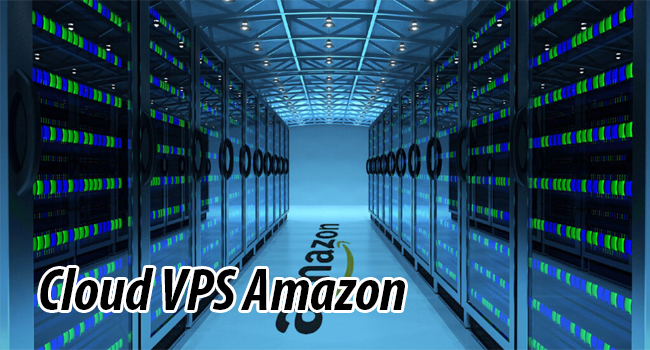An In-Depth Look at Amazon’s Cloud VPS: Amazon Lightsail
Amazon Web Services (AWS) is a dominant player in the cloud computing industry, offering a wide range of services that cater to various needs. Among these, Amazon Lightsail stands out as a simplified, user-friendly Virtual Private Server (VPS) solution. This article provides a comprehensive overview of Amazon Lightsail, its features, benefits, and how it compares to other VPS offerings.

What is Amazon Lightsail?
Amazon Lightsail is AWS’s easy-to-use VPS service designed for developers, small businesses, and anyone who needs a simple, cost-effective way to launch and manage a virtual private server. Lightsail provides all the essential features of a VPS, including compute power, storage, and networking, packaged in a simplified interface that makes it accessible even for users with limited cloud experience.
Key Features of Amazon Lightsail
1. Simplified User Interface
Amazon Lightsail is known for its user-friendly interface, which simplifies the process of setting up and managing virtual servers. This intuitive design makes it easy to deploy applications, manage resources, and monitor performance without needing extensive technical knowledge.
2. Pre-configured Application Stacks
Lightsail offers a variety of pre-configured application stacks, including popular options like WordPress, Magento, LAMP, Node.js, and more. These one-click deployments enable users to quickly set up their preferred environment without the hassle of manual configuration.
3. Scalable Resources
Lightsail instances come in various sizes, allowing users to choose the right combination of CPU, RAM, and storage for their needs. As your requirements grow, you can easily scale up your resources by upgrading to a larger instance.
4. Integrated Networking
Lightsail includes integrated networking features such as static IP addresses, DNS management, and load balancers. These tools help ensure that your applications are accessible and performant, regardless of the traffic they receive.
5. Built-in Security
Security is a critical aspect of any cloud service, and Lightsail is no exception. It provides built-in firewalls, DDoS protection, and secure SSH access to help protect your instances from unauthorized access and attacks.
6. Automated Backups and Snapshots
Lightsail allows users to take automated snapshots of their instances, providing an easy way to back up data and recover from potential issues. This feature ensures that you can restore your server to a previous state quickly if needed.
7. Cost-Effective Pricing
Amazon Lightsail offers predictable, flat-rate pricing that includes all the essential features you need for a VPS. This cost-effective approach makes it easier to budget for cloud services without worrying about unexpected charges.
Benefits of Amazon Lightsail
1. Ease of Use
One of the main benefits of Lightsail is its ease of use. The service is designed to simplify cloud hosting, making it accessible to users with varying levels of technical expertise. The intuitive interface and pre-configured options help streamline the setup process.
2. Cost Predictability
Lightsail’s flat-rate pricing structure provides cost predictability, which is particularly beneficial for small businesses and developers working with limited budgets. This transparency allows users to know exactly what they will pay each month, avoiding surprise charges.
3. AWS Integration
Although Lightsail is a simplified service, it is still part of the broader AWS ecosystem. This integration means that users can easily take advantage of other AWS services as their needs grow, providing a seamless transition to more advanced cloud solutions if required.
4. Global Availability
Lightsail instances are available in multiple AWS regions worldwide, ensuring that you can deploy your applications close to your target audience. This global reach helps reduce latency and improve performance for end-users.
Comparing Amazon Lightsail to Other VPS Providers
While Amazon Lightsail offers many advantages, it’s important to compare it with other VPS providers to determine the best fit for your needs.
Amazon Lightsail vs. DigitalOcean
- Ease of Use: Both Lightsail and DigitalOcean are known for their user-friendly interfaces. However, Lightsail may be more accessible for those already familiar with AWS.
- Pricing: DigitalOcean offers competitive pricing similar to Lightsail. Both providers have predictable pricing models, but specific costs may vary based on the configuration.
- Features: DigitalOcean offers a robust set of features, including a large marketplace of one-click applications. Lightsail’s strength lies in its seamless integration with the broader AWS ecosystem.
Amazon Lightsail vs. Linode
- Performance: Both Lightsail and Linode provide high-performance VPS solutions. Linode is known for its powerful infrastructure and competitive pricing.
- Scalability: Lightsail integrates with AWS, offering more scalability options as your needs grow. Linode also offers scalability but may require more manual management.
- Support: Both providers offer strong customer support. AWS’s extensive documentation and support resources give Lightsail an edge for those needing comprehensive guidance.
Amazon Lightsail vs. Vultr
- Flexibility: Vultr offers a wide range of instance types and configurations, providing flexibility for diverse workloads. Lightsail’s configurations are simpler but may be sufficient for many users.
- Global Reach: Vultr has numerous data center locations globally, similar to AWS. Both providers can serve a global audience effectively.
- Ease of Use: Lightsail’s integration with AWS services provides an advantage for users planning to expand their cloud infrastructure within the AWS ecosystem.
Conclusion
Amazon Lightsail is an excellent choice for developers, small businesses, and anyone seeking a simple, cost-effective VPS solution. Its user-friendly interface, predictable pricing, and seamless integration with the AWS ecosystem make it a compelling option for hosting websites, applications, and development environments.
While comparing Lightsail with other VPS providers, it’s clear that each has its strengths. Lightsail excels in ease of use and AWS integration, making it ideal for those who anticipate growing their cloud infrastructure within AWS. On the other hand, providers like DigitalOcean, Linode, and Vultr offer their own unique advantages, such as specific feature sets and pricing models.
Ultimately, the best VPS solution depends on your specific needs and preferences. By understanding the key features and benefits of Amazon Lightsail, you can make an informed decision that aligns with your hosting requirements and business goals.